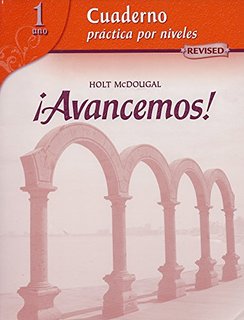
All Solutions
Page 17: Leer C
Lucas *es* de Nicaragua. Araceli *es* de México. Simón *es* de Texas, Estados Unidos.
(Lucas *is* from Nicaragua. Araceli *is* from Mexico. Simón *is* from Texas, the United States.)
This specific question is focused on the correct use of the irregular verb ***ser (to be)*** in the present tense.
In our answer, each of the person (Lucas/Araceli/Simón) is third person singular, so we will use the third-person singular form of *ser*, which is “es.”
Pattern: A + subject + pronoun + gustar + object.
Example: A + Juan + le + gusta + mirar la televisión.
(Lucas likes to watch television.)
Notice that the pronoun changes depending on the subject. If the subject is singular, then the pronoun is **”le.”** If the subject is plural, then the pronoun is **”les.”**
On the other hand, the verb *gustar (to like)* in this construction stays the same—it is always **”gusta.”**
A Valeria y Lucas les gusta alquilar un DVD los sábados.
(Valeria and Lucas like to rent a DVD on Saturdays.)
A Araceli le gusta preparar la comida. A Valeria le gusta comer la comida que ella (Araceli) prepara.
(Araceli likes to prepare food. Valeria likes to eat the food she (Araceli) prepares.)
A Valeria y Simón less gusta estudiar el español después de las clases.
(Valeria and Simón like to study Spanish after classes.)
A todos les gusta comer helado.
(All of them like to eat ice cream.)
Do you like to eat ice cream? What do you like to eat?
– Sí, a mí me gusta comer helado. A mí me gusta comer pizzas y hamburgesas.
(Yes, I like to eat ice cream. I like to eat pizzas and hamburgers.)
– No, a mí no me gusta comer helado. A mí me gusta comer frutas y verduras.
(No, I do not like to eat ice cream. I like to eat fruits and vegetables.)
What activities do you and your friends like to do after classes?
– A mí y mis amigos nos gusta practicar deportes después de las classes.
(My friends and I like to practice sports after classes.)

